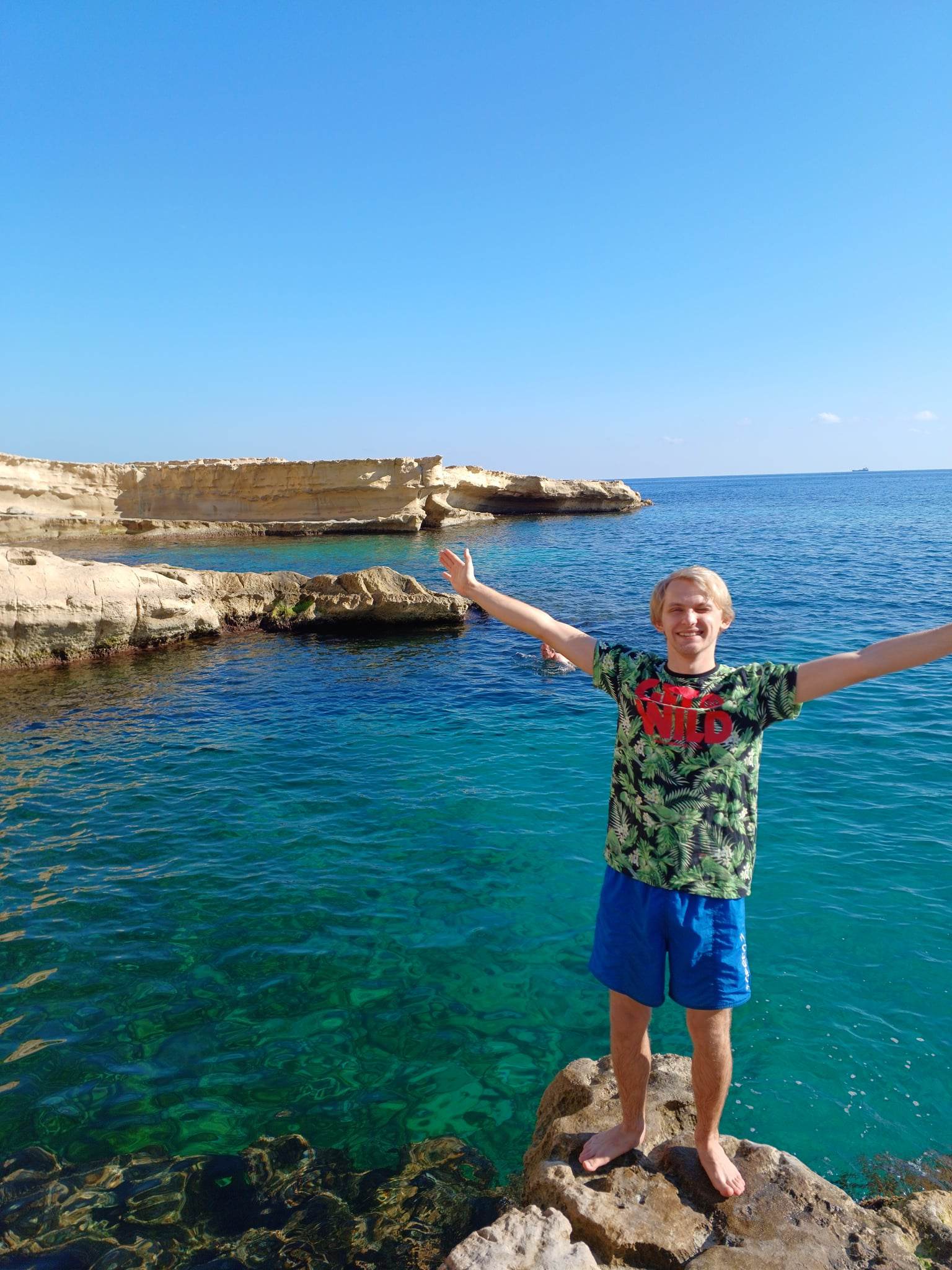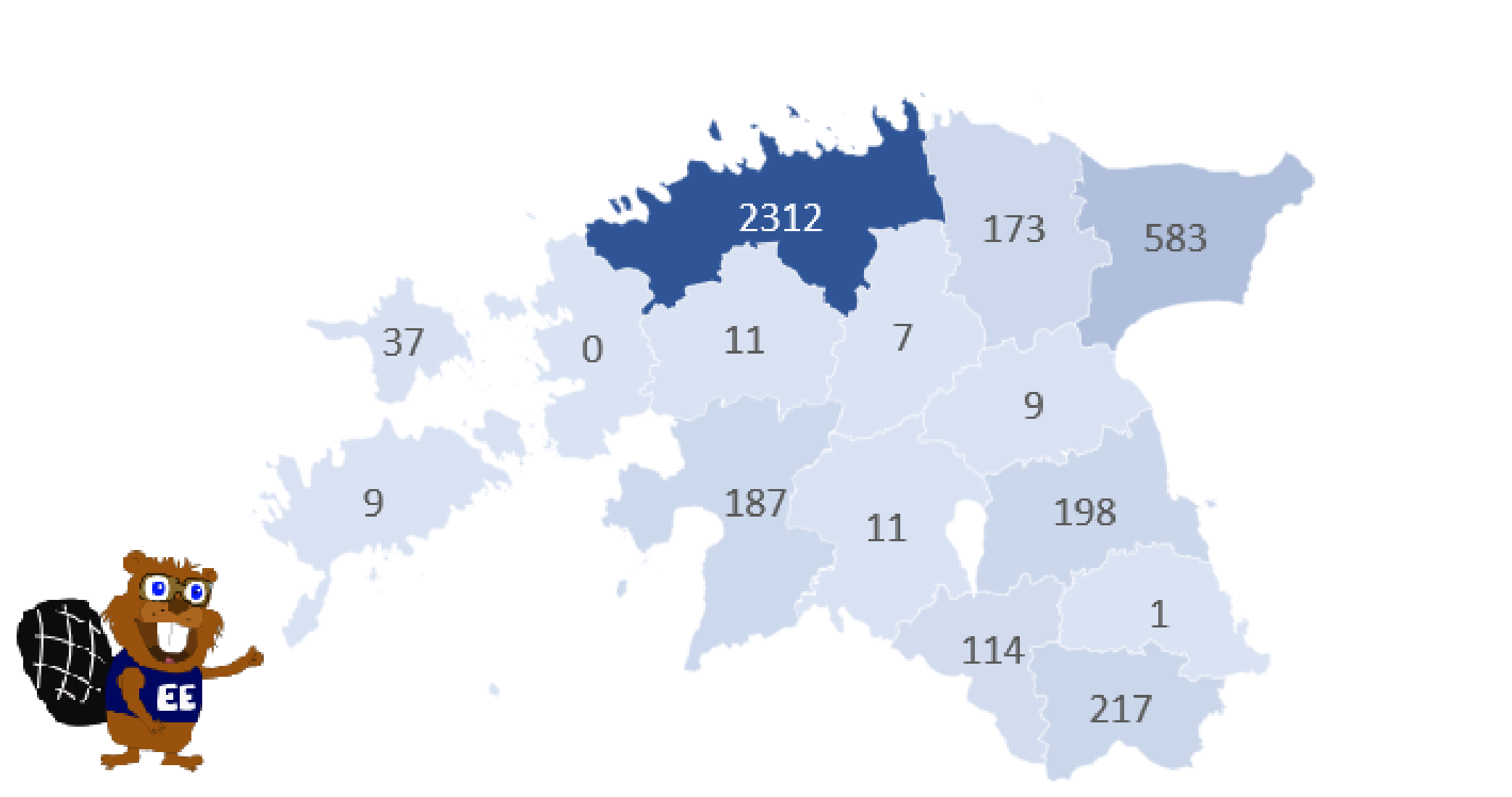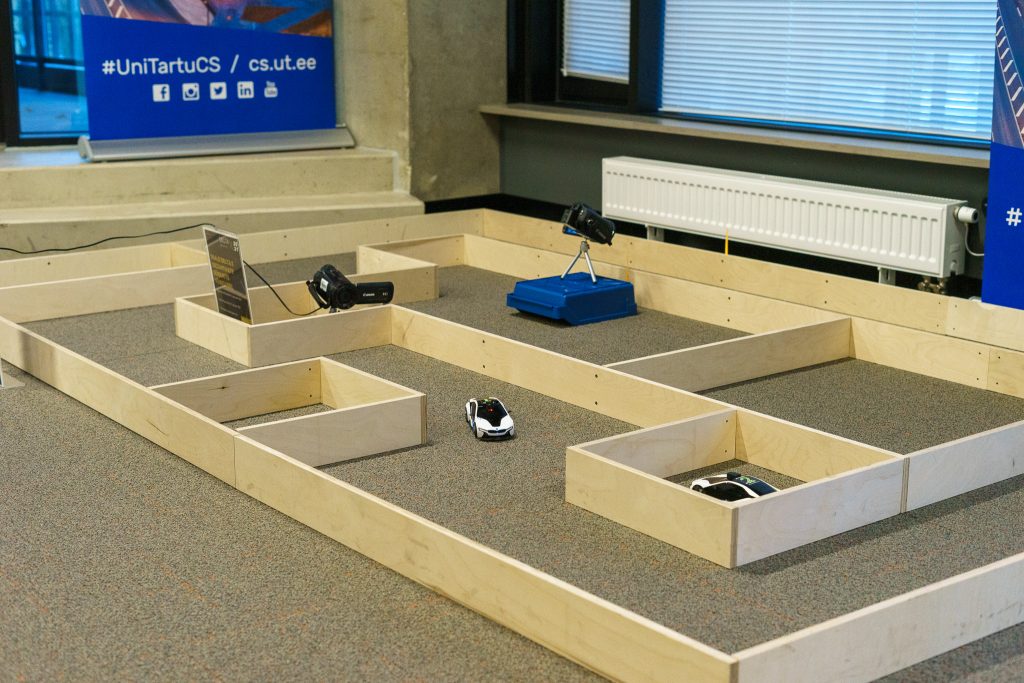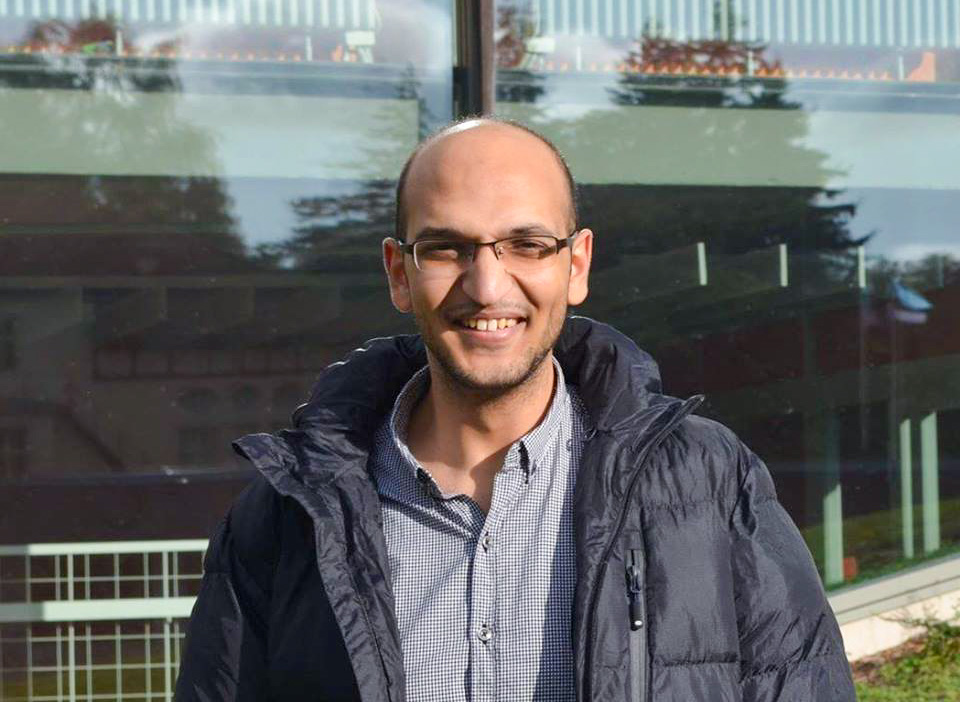Alguses võib IT-tööstusmagistrantuur tunduda nagu võõras asi, kuid paljud UT tudengid on selle edukalt ning õnnelikult läbinud! Järgnevalt saad lugeda kahe tudengi – Lukase (inglise keeles) ning Artjomi (eesti keeles) – kogemustest ITTM-is.
Lukas (ENG)
Lukas is a second year Computer Science master’s student. He applied to Reach-U as part of the Industrial Master’s Programme in IT. His thesis will be about predicting urban mobility with the help of deep learning.
What company are you at as part of the program?
I’m at Reach-U.
What do they do and what do you do there?
I’m currently working in the ETL (extract, transform, load) team — it’s a data science thing. The way I see it, Reach-U is a software development and data science company, which works with data, and cooperates with companies around the world.
When you came here, you were assigned two supervisors: an academic one and someone from Reach-U. What is your cooperation with the supervisor from Reach-U like?
You could say I have two supervisors from Reach-U. My “official” supervisor is Tanel, but I’m part of a team of three and they both give me tasks, review my code and help me in any way possible.
Can you talk about what skills you wanted to develop when you joined the program?
Previously I didn’t have any job experience related to programming and/or computer science, so my aim was to gain experience in the field. More specifically, you could say it was about coding: I wanted to learn how to code properly. Sure, I knew how to work in Python and everything, but I didn’t have the skills and the experience to be working on a continuous project, so that was my focus. And I think I have actually improved a lot and can already see the fruits of my labor.
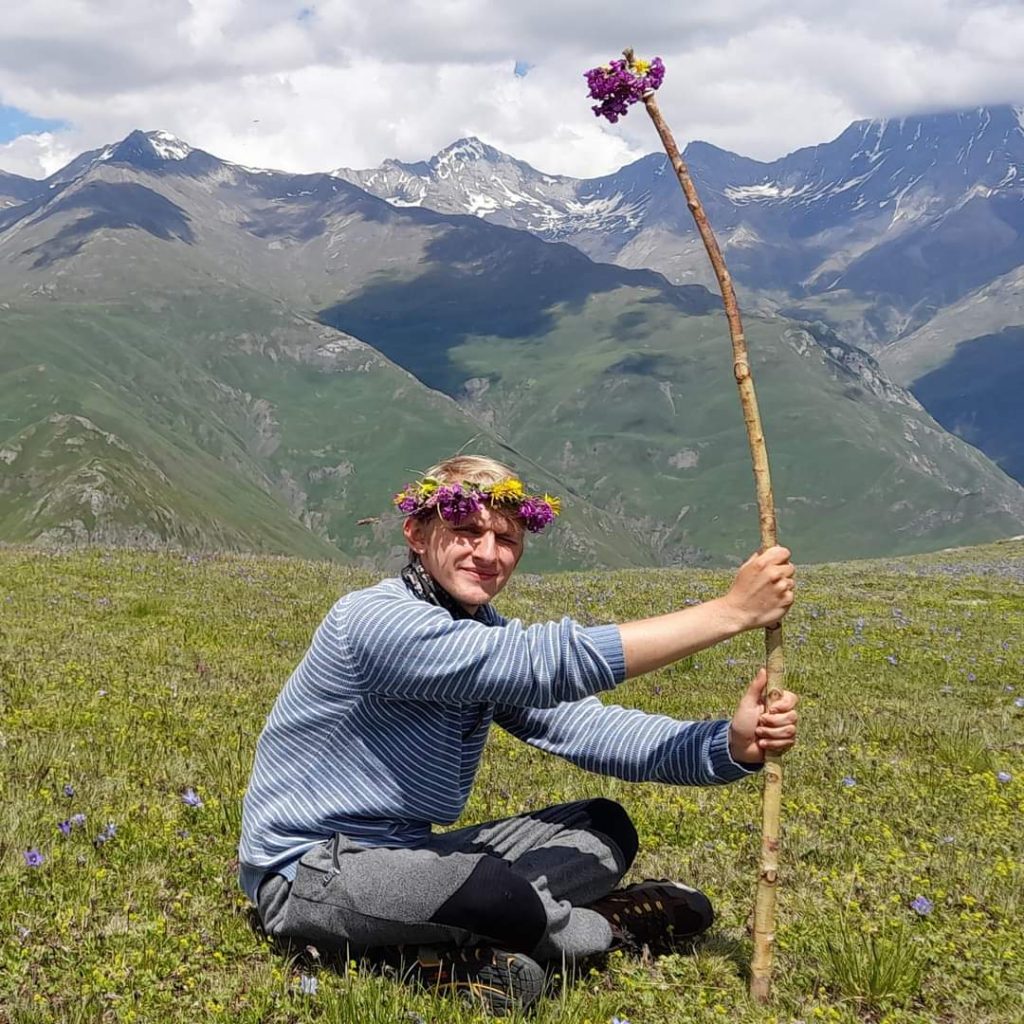
When you think back to your expectations from before joining the program, have you gotten what you wanted? Have you met any big surprises?
You could say everything was new: working with a new operating system, working with new tools and visualization methods, putting it all together was new. Before I came here, I was aware of very little so everything was a bit of a surprise for me. But I think I’ve managed with the help of my team-mates who have been helping me a lot by reviewing my code, giving me nice hints about my tasks and so on.
What has been the greatest challenge for you in the program?
The thing is, the projects that I’ve been involved in don’t have hard time limits. Usually a task that I have been given looks really simple on the surface. For example, it could be something like “Do an outlier detection in these regions and look how close the regions are to each other.” At first it sounds easy, but then you start doing research: how to visualize all this, how to determine what and when should be considered “close”, what kind of tools to use; what about the end user: do they want to be able to use the tool themselves and see intermediate results after data processing and before visualization? How do I hand over the data to them? A lot of things to think about and a big challenge.
If you think about when you will be finishing the program one day, do you think you will have achieved everything you wanted to?
I think yes, actually. I have achieved a lot already, but there is a lot left to do with half of the program ahead.
Has the program given you anything that you could say was useful? Do you feel you are far more proficient and experienced in the field?
Yes, of course. As I previously said, I had no experience beforehand, but this program gave me that. I actually chose this program just because of that. I heard that the Industrial Master’s is made to be easily accessible for students: you can develop professionally while studying and you get to do your thesis, which I am really grateful for. Definitely something to have on my CV.
The level of commitment: has it been too intense, intense enough, or not intense enough?
I think, for me, it has been as much as I wanted. I’m quite critical of myself, meaning I want to push myself to do more. At the same time, my team-mates, my supervisor and project manager do not set any hard boundaries on my projects, so I can do more research around them and explore other possible solutions. Thanks to this, I feel that I have been challenged as much as I want to.
Do you think this expertise is something that you want to work on in the future?
Currently, I think, yes. Specifically, in Reach-U—this company has really grown on me and I feel I would like to stay here if they are willing to take me in.
Is there anything else you want to add?
The company puts a lot of effort into accepting me. Since I’m the only foreigner here—everyone else is Estonian—they have to put in a lot of effort to do the training and seminars in English. I’m really grateful for that! Also, the company really works on the team’s morale. I have been here for half a year, but I’ve already been on two or three trips with them. The people here are really nice and warm, I really feel accepted here.
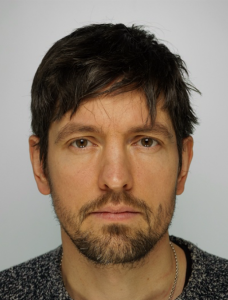
Artjom
Artjom on teise aasta magistrant Andmeteaduse erialal. Ta kandideeris IT-tööstusmagistrantuuri raames Eesti Energiasse. Oma magistritööga proovib Artjom tarkade kodude elektritarbimist ennustada.
Milline firma Eesti Energia on ja mida sina siin IT-tööstusmagistrantuuri raames teed?
Ma osalen programmi raames ühe konkreetse tiimi töös. Töötan oma teema kallal ja tiimis on mul juhendaja, kes on minu esimene kontakt, kellega me suhtleme minu ülesannete teemal. Samuti üritan osaleda tiimi igapäevategemistes: meil on pidevalt stand-up-id, demod, isegi üks hackathon oli.
Kuidas on programmis osalemine sinu arengut mõjutanud? Oled sa siin uusi oskusi juurde saanud?
Jaa, kindlasti! Võib-olla kõige olulisemana on mu praktilised oskused siin olles pidevalt arenenud. Muidugi olen palju süvenenud elektri ja energeetika temaatikasse — ilma selleta oleks mul oma andmeanalüüsiga raske midagi ennustada siin.
Kas Eesti energia valisid sa sellepärast, et sul oli konkreetselt just selle valdkonna vastu huvi?
Mul oli huvi proovida midagi reaalset ja elulist teha. Tahtsin end proovile panna uues keskkonnas, midagi praktilist teha ja näha, kuidas toimib reaalses maailmas tegutsev ettevõte. Mul endal on pikk kogemus ülikoolis, aga tahtsin just midagi sellist teha, millel oleks inimestele otsesem mõju kui teadusel. Eesti Energia positsioon oli minu esimene valik ja kõige põnevam minu jaoks.
Kui sa Eesti Energia kasuks otsustasid, siis mida sa ootasid siia tulles ja kas need ootused on tõeks saanud?
Ma ootasin väljakutset ja selle kindlasti ka sain. Kollektiiv on uus minu jaoks, aga õnneks nad on väga abivalmid ja toredad. Ootasin väga, et saaks reaalset andmeteadust teha paralleelselt ülikooli õppetööle.
Mis on sinu jaoks olnud üllatav?
Üllatus oli see, et inimesed minu tiimis teevad peamiselt kaugtööd. Täpsemalt oli üllatuseks see, et nende töövoog on väga hästi korraldatud, vaatamata sellele, et nad ei ole kontoris; see korralduse tase on väga kõrge. Meeldiv oli ka see, et oskasin ülikoolis õpitut vabalt ettevõttes rakendada — sain kinnitust, et ülikoolist omandatavad teadmised on väga konkurentsivõimelised.
Kui palju oled sa teinud koostööd oma akadeemilise juhendajaga?
See on üks väga suur osa programmist — koostöö akadeemilise juhendajaga toimub pidevalt. Arvan, et see suhtlus on väga oluline, sest äris ei ole teaduslik taust ja täpsus esimesel kohal, aga akadeemilise juhendajaga arutame teaduslikust vaatenurgast, kuidas oleks mul parem Eesti Energia probleeme lahendada. Samuti toimub koostöö õppejõududega nende õppeainete raames, mille ma olen valinud, teades, et ma olen siin Eesti Energias. Need ained, mida ma olen valinud, on üsna asjakohased: sealt saadud ideid olen proovinud Eesti Energias otseselt rakendada, ja vastupidi, võtan mingid probleemid siit ja üritan neid lahendada aineprojektides ülikoolis.
Millised on need oskused või teadmised, mis nendest õppeainetest on kasuks tulnud?
On erinevad praktilised momendid. Näiteks, üks õppeaine, mida ma võtsin, on seotud aegridadega, ja siin, Eesti Energias, ma tegelen ka aegridadega. Andmeteaduse eriala esimesel aastal seda ainet ei ole, aga minu jaoks oli see nagu kohustuslik valik, kuna ma teadsin, et siin on vaja nendega tegeleda.
